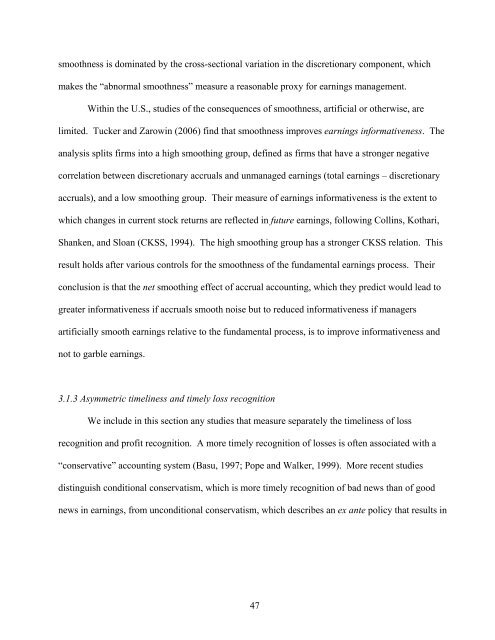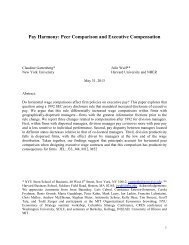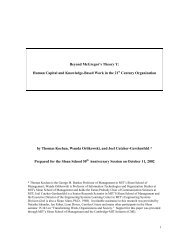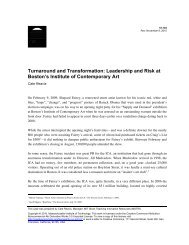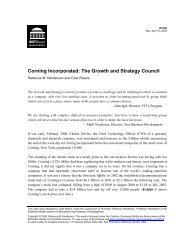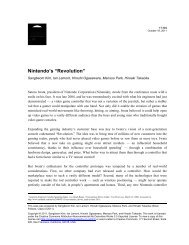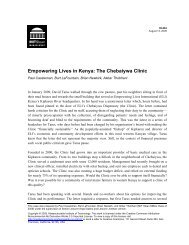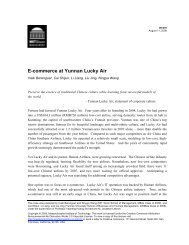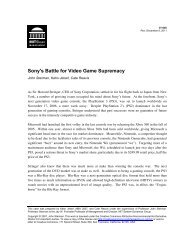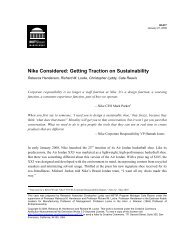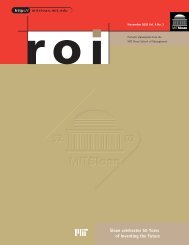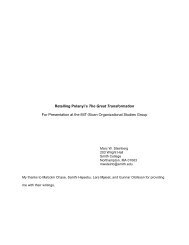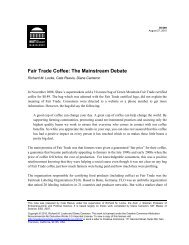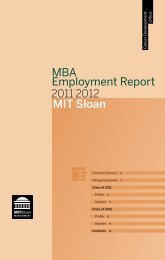Understanding earnings quality - MIT Sloan School of Management
Understanding earnings quality - MIT Sloan School of Management
Understanding earnings quality - MIT Sloan School of Management
You also want an ePaper? Increase the reach of your titles
YUMPU automatically turns print PDFs into web optimized ePapers that Google loves.
smoothness is dominated by the cross-sectional variation in the discretionary component, which<br />
makes the “abnormal smoothness” measure a reasonable proxy for <strong>earnings</strong> management.<br />
Within the U.S., studies <strong>of</strong> the consequences <strong>of</strong> smoothness, artificial or otherwise, are<br />
limited. Tucker and Zarowin (2006) find that smoothness improves <strong>earnings</strong> informativeness. The<br />
analysis splits firms into a high smoothing group, defined as firms that have a stronger negative<br />
correlation between discretionary accruals and unmanaged <strong>earnings</strong> (total <strong>earnings</strong> – discretionary<br />
accruals), and a low smoothing group. Their measure <strong>of</strong> <strong>earnings</strong> informativeness is the extent to<br />
which changes in current stock returns are reflected in future <strong>earnings</strong>, following Collins, Kothari,<br />
Shanken, and <strong>Sloan</strong> (CKSS, 1994). The high smoothing group has a stronger CKSS relation. This<br />
result holds after various controls for the smoothness <strong>of</strong> the fundamental <strong>earnings</strong> process. Their<br />
conclusion is that the net smoothing effect <strong>of</strong> accrual accounting, which they predict would lead to<br />
greater informativeness if accruals smooth noise but to reduced informativeness if managers<br />
artificially smooth <strong>earnings</strong> relative to the fundamental process, is to improve informativeness and<br />
not to garble <strong>earnings</strong>.<br />
3.1.3 Asymmetric timeliness and timely loss recognition<br />
We include in this section any studies that measure separately the timeliness <strong>of</strong> loss<br />
recognition and pr<strong>of</strong>it recognition. A more timely recognition <strong>of</strong> losses is <strong>of</strong>ten associated with a<br />
“conservative” accounting system (Basu, 1997; Pope and Walker, 1999). More recent studies<br />
distinguish conditional conservatism, which is more timely recognition <strong>of</strong> bad news than <strong>of</strong> good<br />
news in <strong>earnings</strong>, from unconditional conservatism, which describes an ex ante policy that results in<br />
47


